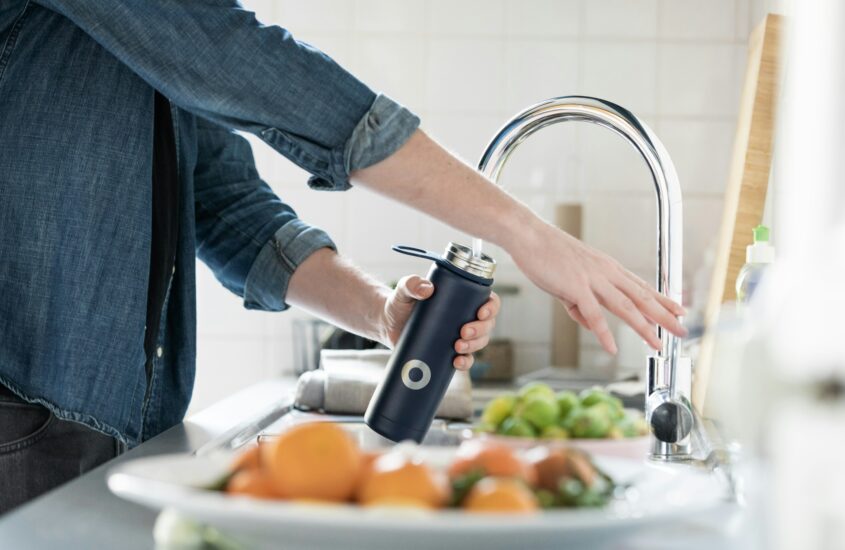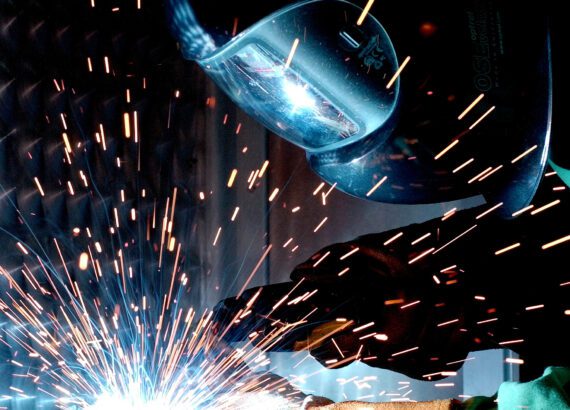Ultraviolet Water Systems and Why They’re Beneficial

Ultraviolet water purification is considered the most effective method of disinfecting bacteria from water. UV water purification systems are highly efficient in destroying 99.99% of harmful waterborne microorganisms like Giardia, Crypto, and E. Coli while eliminating their ability to reproduce. That makes UV systems a simple, effective, and environmentally safe water disinfection option in homes, ensuring peace of mind for many homeowners.
However, UV systems are not enough to purify water down to drinking water purposes. While they eliminate bacteria and viruses, they don’t eliminate other water contaminants like chlorine, volatile organic compounds, and heavy metals. Most ultraviolet water systems are paired with reverse osmosis systems to provide a complete point-of-entry and point-of-use purification process that ensures the safest drinking water.
In this article, we’re going to look at the various reasons why ultraviolet water systems are beneficial to homeowners and what you should know if you’re considering installing such a system in your home.
Benefits of Ultraviolet Water Systems
Nothing is more important than making sure you’re relying on the best purification process when the safety of your water is at stake. UV water treatment systems provide the safest and cleanest drinking water that home filtration systems provide today. Here are some of the benefits:
- Reliable – Works 24/7 day and night, consistently keeping your water safe.
- Highly effective – Destroys up to 99.99% of harmful water microorganisms.
- Environmentally friendly – Ultraviolet water systems are an environmentally friendly alternative to chlorine disinfection.
- Chemical-free – There are no harmful chemicals that need to be added to the process.
- Cost-effective – UV water purification systems only need lamp and sleeve replacement annually.
- Low energy consumption – UV systems use low energy, saving you high electrical costs. Such solutions are part of a larger push for sustainable energy solutions.
- Quick water disinfection process – Water quickly flows through the system with no need for a holding tank or reaction times.
- Water conservation – The UV water purification process doesn’t waste any water.
- Clean and safe process – No chemicals and no dirty parts to dispose of during the process. That means there are no wastewater treatment needs.
- Trouble-free operation – Once you’ve installed a UV water system, you only need to do the scheduled annual servicing.
- FDA-approved process – UV water purification is one of only four methods approved for effective water purification by the FDA.
- No taste or odor in the water – Other chemical-based water purification methods like chlorine change the odor and taste of water and produce byproducts. UV water systems don’t, making them perfect for tap or bottled water.
What You Should Know Before Installing UV Water Systems
It’s vital to choose the right UV unit size for your entire home. To ensure reliability, choose a size that matches your household’s peak demand flow rate – that’s the measure of how much water can flow through your main water line if all your household water outlets are opened at once. The UV water purification system design also matters. Some design features are critical to ensure the right UV dosage is delivered.
- The wavelength output of the UV lamp
- The length of the UV lamp (when mounted parallel to the direction of water flow, the exposure time is proportional to the length of the lamp)
- The design of the water flow rate (exposure time is related to the linear flow rate)
- The diameter of the water purification chamber (since water absorbs UV energy, the dosage delivered diminishes depending on the distance of the UV lamp)
Most Important Features of a UV Water System
- The best system should be expandable and have a uniform design that’s interchangeable and easy to expand later.
- The system should have a sight port to visually monitor lamp operation or even have an electronic monitoring device.
- A great UV system should have a single lamp per chamber to ensure improved safety through more accurate UV monitoring.
- The UV systems should have a protective quartz sleeve to allow the optimum lamp temperature required for effective UV water purification.
- Ensure the system has a mechanical wiper to clean the sleeve surface without necessarily shutting down or disassembling the UV unit.
- The right UV water system should have optical accessories, including a UV light bulb monitor, flow controls, alarms, and electronic shut-off valves to ensure safe operation without operator input.
While there are other water treatment methods, UV purification systems are one of the most widely used to disinfect water from water wells, rainwater harvesting cisterns, food processing systems, used in homes, institutions, and municipal applications.
The Bottomline
Overall, UV water systems are an effective solution for meeting your water purification needs. The right UV system gives you peace of mind knowing that your water is being disinfected continuously 24/7. Remember that installing pre-filters before a UV system is recommended to remove sediment, iron, lead, chronic, and hardness.



